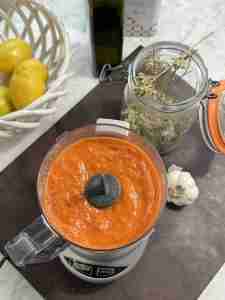

Cooking is an essential part of life. And yet, many people grow up without learning how to cook — or how to do it easily. With the rise of takeout, delivery apps, and convenience foods, it's easy to skip cooking altogether.
Buying prepared foods and eating out costs more than cooking at home, and often delivers less nutrition, flavor, or connection.
Let's set your kids up for a lifetime of healthy (and delicious) habits.
In some cultures, learning to cook is considered just as important as learning math or reading. It's a foundational skill passed down through generations — a form of education that feeds both body and soul. And it's never too soon — or too late — to start cooking.

Summer is the perfect time to bring your kids into the kitchen. School's out, schedules are looser, and fresh produce is everywhere. Whether you're making lunch, baking chicken, or slicing up watermelon, every moment in the kitchen is a chance to learn something — measuring, timing, knife skills, how to taste and adjust. Here are a few tips to get your kids cooking with confidence.
What does it really mean to cook? Everything starts with fresh, quality ingredients — not packages.
When kids understand that a meal comes from fresh, whole ingredients, they begin to grasp the basics of real cooking. Learning to sauté onions, use fresh herbs for flavor, cook eggs, or roast vegetables builds kitchen intuition. When you know the basics, it's easy to open the fridge, see what you have, and cook. No recipe is required.
Have your kids make a list of their favorite ingredients, and we'll use those to cook simple – and delicious – dishes.
You don't need to make something complicated — just cook with fresh ingredients and let the flavors do the work.
Cooking becomes second nature when it's part of daily life. Get your kids involved in meal planning, and then everyone will know "What's for dinner tonight?" When it comes time to cook, they can lend a hand and chop, whisk, stir, blend, squeeze, or spread.

Once you get your kids on board, give them a tour of the kitchen and refrigerator so they know where everything is and how to keep things in their place — sometimes mine do better than I do!

Then, it's time to decide what to put on the Menu. One of the most fun routines is to let them make the menu! This can also help picky eaters get more excited about what's on their plate.
You can also plan a time to shop or a trip to the farmers' market! They need to know about buying food too.








































When cooking becomes part of daily life, everything shifts.
And when your kids come home with friends and say, "We were all hungry but decided to make something here instead of going out," you'll love it!


Great post! I am using your content to familiarize myself with cooking.
Hi Stanley, that is wonderful! Thank you for sharing. Please let me know if there is anything specific you would like to read more about.